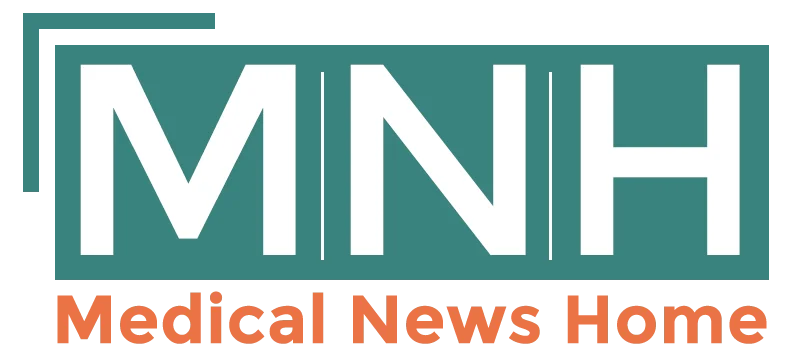The Role of Artificial Intelligence in Improving Healthcare Outcomes
- Updated on: May 7, 2025
- Published on Feb 13, 2023

Artificial Intelligence (AI) refers to the capability of machines to perform tasks that typically require human-level intelligence such as perception, learning, problem-solving, and decision-making. AI has the potential to revolutionize the healthcare industry by automating repetitive tasks, providing more efficient and accurate diagnoses, and enabling personalized treatment plans. The impact of AI on healthcare can be seen in areas such as predictive analytics, clinical decision support, and drug discovery. Healthcare professionals must stay informed about the advancements in AI technology to fully leverage its potential for improving patient outcomes and advancing the field of medicine.
Understanding the Current State of Healthcare
The current state of healthcare is characterized by numerous challenges that are affecting the delivery of quality care. The healthcare system is grappling with inefficiencies such as overburdened healthcare providers, increased demand for services, and rising costs. The COVID-19 pandemic has further highlighted these challenges, as well as the need for agile and innovative solutions to address them. Additionally, the healthcare system is facing issues such as lack of access to care, fragmented care delivery, and disparate health outcomes, particularly for marginalized populations. These challenges underscore the need for a transformative approach to healthcare that leverages cutting-edge technologies, such as artificial intelligence, to improve patient outcomes and create a more equitable and sustainable healthcare system. By understanding the current state of healthcare, healthcare professionals can better appreciate the potential impact of AI and other technologies in addressing these challenges and improving the quality of care.
The Role of Artificial Intelligence in Improving Healthcare Outcomes
- Predictive Analytics: AI can be used to analyze large amounts of data to identify patterns and predict future health outcomes, allowing for early detection of diseases and personalized medicine.
- Streamlining Clinical Workflows: AI can automate repetitive and administrative tasks, freeing up healthcare providers to focus on providing high-quality patient care. It can also improve patient care coordination by enabling seamless communication and data exchange between healthcare providers.
- Improving Diagnosis and Treatment: AI-assisted diagnosis can increase accuracy and efficiency, reducing the risk of misdiagnosis. Additionally, integrating AI with Electronic Health Records (EHRs) can provide healthcare providers with a comprehensive view of a patient’s medical history, facilitating informed treatment decisions.
- Improving Drug Development: AI can accelerate drug discovery by predicting toxicology and enabling faster clinical trials. It can also improve the efficiency of preclinical and clinical studies, reducing the time and cost associated with drug development.
- Enhancing Clinical Decision Support: AI can provide healthcare providers with real-time data and insights, supporting informed decision making and improving patient outcomes. It can also assist with complex calculations and simulations, enabling more precise and effective treatment planning.
Ethical and Regulatory Considerations
The rapid advancement of AI technology in the healthcare sector raises a number of ethical and regulatory considerations that must be addressed to ensure that these technologies are used in a responsible and safe manner. Some of the key ethical and regulatory considerations include:
- Privacy Concerns: The use of AI in healthcare generates vast amounts of personal health data, which must be protected to ensure patient privacy. There is a need for strong privacy laws and regulations that balance the benefits of AI with the need to protect patient privacy and confidentiality.
- Bias in AI Systems: AI systems can be biased, leading to unequal and unfair treatment of certain populations. It is important to ensure that AI algorithms are developed and tested for bias, and that steps are taken to mitigate the risk of bias in their use.
- Regulation of AI in Healthcare: There is a need for clear and consistent regulation of AI in healthcare to ensure its safe and effective use. This includes regulations around the development, testing, and deployment of AI systems, as well as regulations around the training and certification of healthcare providers who use AI.
Future of Artificial Intelligence in Healthcare
The future of Artificial Intelligence (AI) in healthcare is nothing short of revolutionary. With the increasing pace of technological advancements and advancements in AI algorithms, the healthcare sector has immense potential to be transformed. AI is expected to play a crucial role in enhancing the delivery of care, improving patient outcomes and reducing healthcare costs.
One of the primary areas where AI can have a profound impact is in the field of diagnostics. AI algorithms can be trained to recognize patterns and correlations in vast amounts of medical data, making it easier for healthcare professionals to arrive at accurate diagnoses. Additionally, AI-powered chatbots and virtual assistants can provide patients with prompt and reliable answers to their health-related questions, thereby reducing the burden on healthcare providers.
Another area where AI can have a transformative impact is in the realm of drug discovery and development. AI algorithms can be used to analyze vast amounts of genetic and molecular data to identify new treatments for a wide range of diseases, including cancer and other debilitating conditions. Furthermore, AI can also be used to monitor and analyze the efficacy of existing treatments and identify potential side effects, thereby improving the safety and efficiency of care delivery.


